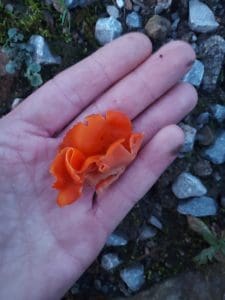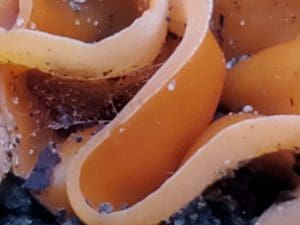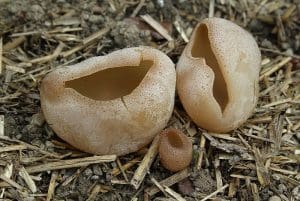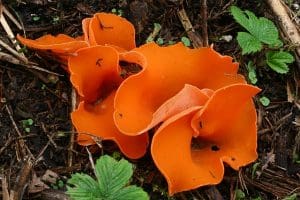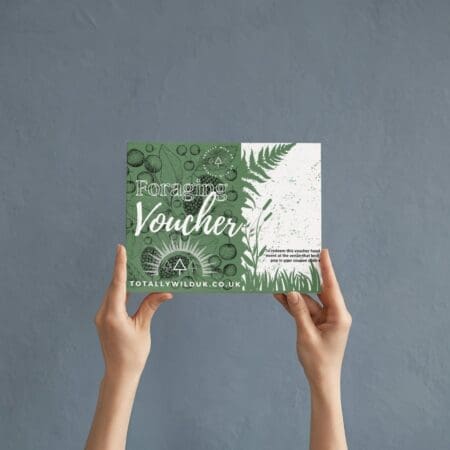Orange Peel fungus / Summer / Autumn / Edible
Orange Peel Fungus is a visually striking fungus, reminiscent of discarded orange peel bits, it’s a common sight in North America, Europe, Asia, and South America during the summer and autumn months. From its distinct cup-like appearance to its vibrant orange color, the Orange Peel Fungus is a captivating addition to the forest floor landscape.
The fungus, lacking a pronounced stem, is typically found on clay-based soil, forest edges, and sawdust substrate. Its ascocarps, ranging from 2 to 10 cm in diameter, are often flattened or clustered, adding to its unique allure. Whether it’s the beauty of its fruiting bodies or its role as a saprotrophic decomposer, the Orange Peel Fungus is a testament to the marvels of nature.
I’ve actually fully confused this mushroom with a simple orange peel before, squeeling with joy and jumping over a fence to find a simple discarded orange peel.
Scientific Name
Aleuria aurantia
Common Names
Orange Peel fungus
Family
Pyronemataceae
Habitat
They are saprobic, and are generally found on disturbed ground, sometimes fighting through asphalt and gravel. The tracks used by forestry staff and vehicles are where I find them the most.
Description
This is one of the very few common cup fungi that are edible, although they are not particularly tasty.
Traditionally classed as saprobic but are now possibly thought to be mycorrhizal
Identifying Features of Orange Peel fungus:
Cap:
The cap is 2–10 cm wide, cup-shaped but often misshapen. And as the common name suggests they look like orange peel.
They can vary in colour from pale orange through to a red inside the cup, the surface on the outside is paler and covered in a very fine whitish down.
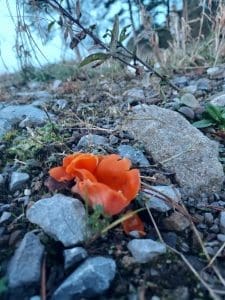
Smell:
No distinctive smell.
Spores:
White.
Uses of Orange Peel fungus
In food
Although not toxic they are tough so not one for the pot really. They do make a nice garnish though.
Known hazards
No known hazards.
Potential lookalikes
They are quite distinctive but could possibly be confused with the Scarlet Elf Cup (Sarcoscypha austriaca), but the Elf cup is bright red and grows on dead twigs and branches, in mossy woods.
Some members of the Peziza family can also look similar but they are brown to tan and never as bright orange as the Orange Peel Fungus. Pezizas are inedible not toxic.
References:



